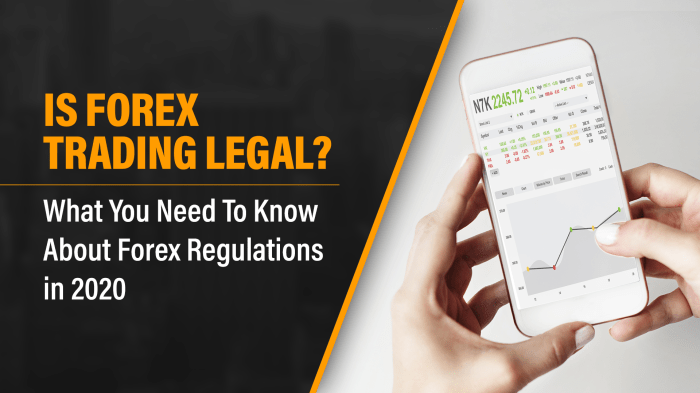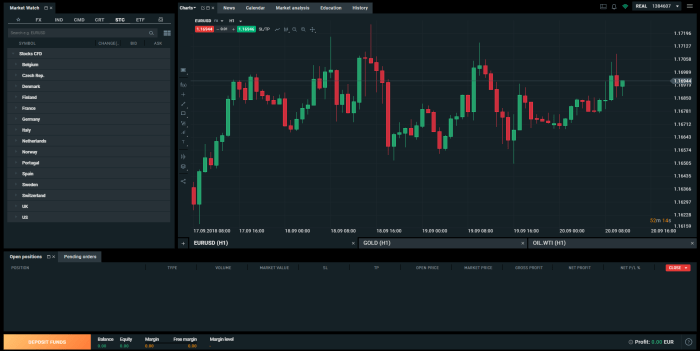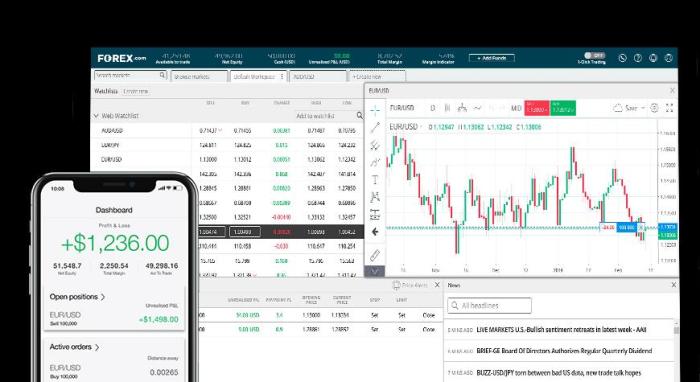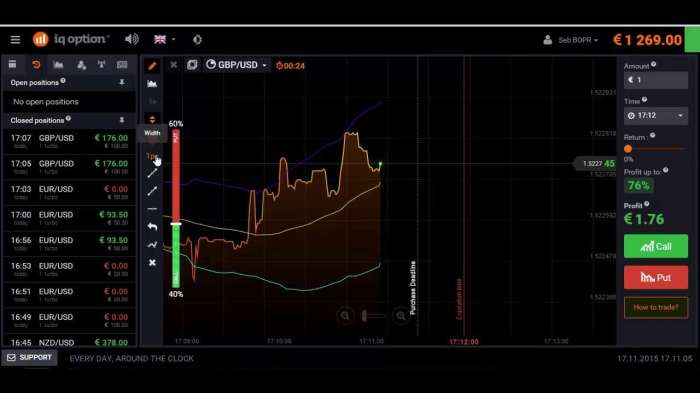
Is forex trading legal? The short answer is: it depends. The world of foreign exchange trading is a complex landscape, governed by a patchwork of international regulations. While forex itself is legal in most countries, the legality and safety of *how* you trade it hinges heavily on your location, your broker, and your understanding of the rules. Navigating this maze requires a keen eye for detail and a healthy dose of caution. This guide unravels the intricacies of forex legality, helping you make informed decisions and avoid potential pitfalls.
From understanding the regulatory bodies in major financial centers like the US, UK, and Japan to recognizing the red flags of fraudulent schemes, we’ll demystify the legal aspects of forex trading. We’ll explore the tax implications, the responsibilities of both traders and brokers, and the specific legal considerations for different types of traders – from retail investors to institutional players and automated trading systems. By the end, you’ll have a clearer picture of the legal terrain and be better equipped to tread safely and confidently.
Legal Status of Forex Trading Globally

Forex trading, the buying and selling of currencies, operates within a complex global regulatory landscape. Its legality isn’t universally uniform; instead, it’s shaped by individual countries’ financial regulations and the nature of the brokers involved. Understanding these nuances is crucial for anyone considering participating in this potentially lucrative but risky market.
Regulatory Frameworks in Major Jurisdictions
The regulatory landscape for forex trading varies significantly across different countries. Three major examples illustrate this diversity: the United States, the United Kingdom, and Japan. Each nation employs distinct regulatory bodies and enforcement mechanisms, impacting the level of protection afforded to traders. The following table summarizes key aspects of these regulatory frameworks.
| Country | Regulatory Body | Key Regulations | Penalties for Violations |
|---|---|---|---|
| United States | Commodity Futures Trading Commission (CFTC) and the National Futures Association (NFA) | Regulation of forex brokers, margin requirements, anti-money laundering (AML) compliance, and customer protection rules. Retail forex trading is primarily regulated under the Commodity Exchange Act. | Significant fines, trading bans, and even criminal charges for serious offenses. The CFTC has the power to impose substantial financial penalties and pursue legal action against violators. |
| United Kingdom | Financial Conduct Authority (FCA) | Strict regulations governing forex brokers, including capital adequacy requirements, client segregation of funds, and transparency in pricing and execution. The FCA operates under the Financial Services and Markets Act 2000. | Fines, restrictions on activities, and even the revocation of operating licenses. The FCA’s enforcement actions can severely impact a broker’s reputation and ability to operate. |
| Japan | Financial Services Agency (FSA) | Regulations focusing on the licensing and supervision of forex brokers, customer protection, and anti-money laundering measures. The FSA’s oversight aims to maintain the integrity of the Japanese financial markets. | Administrative penalties, business restrictions, and criminal prosecution for serious violations. The FSA’s enforcement actions are designed to deter illegal activity and protect investors. |
Regulated vs. Unregulated Forex Brokers, Is forex trading legal
A crucial distinction for forex traders lies in the choice between regulated and unregulated brokers. Regulated brokers operate under the supervision of a recognized financial authority, adhering to strict rules and regulations designed to protect traders. This includes maintaining adequate capital reserves, segregating client funds, and adhering to transparent trading practices. Conversely, unregulated brokers lack this oversight, increasing the risk of fraud, scams, and unfair trading practices. Trading with a regulated broker offers significantly greater protection against potential losses and manipulation. Choosing an unregulated broker exposes traders to substantially higher risks, including the potential loss of their entire investment.
Common Misconceptions about Forex Trading Legality
Several misconceptions surround the legality of forex trading. One common belief is that forex trading itself is illegal. This is generally false; forex trading is legal in most countries, but the activity of brokers and the conduct of traders are subject to specific regulations. Another misconception is that all forex brokers are equally trustworthy. As discussed earlier, this is untrue; a significant difference exists between regulated and unregulated brokers. Finally, some believe that the decentralized nature of the forex market makes it immune to regulation. While the market is decentralized, most countries regulate the entities operating within it, particularly those interacting directly with retail traders. Ignoring these regulations can lead to serious legal consequences.
Forex Trading and Tax Implications
Navigating the world of forex trading involves more than just analyzing charts and predicting market movements; understanding the tax implications is crucial for maintaining financial health. The complexities of forex taxation vary significantly depending on your location, trading frequency, and profit/loss levels. Let’s delve into the specifics.
Forex Trading Taxation in the United States
In the United States, forex trading profits are considered short-term capital gains if held for one year or less, and long-term capital gains if held for more than one year. However, the reality for most forex traders is that their trades are generally considered short-term. This means your profits are taxed at your ordinary income tax rate, which can be significantly higher than the rates applied to long-term capital gains. Losses, on the other hand, can be deducted against your ordinary income, up to a maximum of $3,000 per year ($1,500 if married filing separately). Any excess losses can be carried forward to future tax years. Accurate record-keeping is paramount; the IRS requires detailed records of all trades, including the date, currency pair, amount traded, and profit or loss for each transaction. Failure to maintain these records can lead to penalties.
International Tax Implications of Forex Trading
Tax laws regarding forex trading differ substantially across countries. Some nations may treat forex trading profits as ordinary income, while others might categorize them as capital gains, potentially with different tax rates applied based on the holding period. Reporting requirements also vary widely. Some countries might necessitate reporting each individual trade, while others may allow for aggregate reporting of annual profits and losses. For instance, in the UK, forex trading profits are generally taxed as income, while in some countries with favorable tax regimes for specific financial activities, forex trading might receive preferential treatment. Before engaging in forex trading, it’s essential to thoroughly research the specific tax laws and regulations of your country of residence and any other relevant jurisdictions.
Hypothetical Forex Trader Tax Filing Scenario
Let’s imagine Sarah, a US-based forex trader, had the following trading activity in a single tax year:
| Trade Date | Currency Pair | Amount Traded (USD) | Profit/Loss (USD) |
|---|---|---|---|
| January 15 | EUR/USD | 10,000 | 500 |
| March 20 | GBP/USD | 5,000 | -200 |
| June 10 | USD/JPY | 15,000 | 1,000 |
| October 25 | AUD/USD | 8,000 | -300 |
Sarah’s total profit for the year is $1,000 ($500 + $1,000 – $200 – $300). Since these are short-term gains, this amount will be added to her other income and taxed at her ordinary income tax rate. If her ordinary income tax bracket is 22%, her tax liability on forex trading profits would be $220 ($1,000 x 0.22). It is crucial to note that this is a simplified example and doesn’t account for potential deductions or other tax considerations. A qualified tax professional should always be consulted for personalized tax advice.
Risks and Responsibilities in Forex Trading: Is Forex Trading Legal

Forex trading, while potentially lucrative, carries significant risks. Understanding these risks and fulfilling your responsibilities as a trader are crucial for mitigating losses and avoiding legal pitfalls. This section Artikels common risks, fraudulent schemes, and the responsibilities traders must uphold.
Examples of Fraudulent Forex Schemes
It’s essential to be aware of the various fraudulent schemes that prey on unsuspecting forex traders. These scams often promise unrealistic returns and employ deceptive tactics to steal your money. Recognizing these red flags can protect you from substantial financial losses.
- Pump and Dump Schemes: These involve coordinated efforts to artificially inflate the price of a currency pair. Promoters create hype, encouraging others to buy, before selling off their holdings at the inflated price, leaving latecomers with significant losses. Imagine a group promoting a specific currency pair, claiming insider information or guaranteed profits, causing a rapid price increase. Once the price peaks, they sell, causing a sharp drop, leaving those who bought later to suffer significant losses.
- Ponzi Schemes: These fraudulent operations pay earlier investors with funds from newer investors. The scheme collapses when the inflow of new funds slows, leaving everyone with significant losses. In a forex context, this might involve a company promising high returns based on seemingly successful trades, but instead using new investors’ money to pay earlier investors, with no actual trading activity generating profit.
- Forex Signal Scams: These schemes promise accurate trading signals for a fee, often employing misleading marketing and testimonials. The signals provided are frequently inaccurate or intentionally designed to cause losses. A typical example would be a service promising consistent profitable signals for a hefty subscription fee, but delivering signals that consistently lead to losses, with the operators profiting from the subscription fees.
- Unlicensed Brokers: Trading with unlicensed brokers exposes you to significant risks, including the loss of your funds and lack of regulatory protection. These brokers may operate without proper oversight, leaving you vulnerable to fraud and manipulation. A scenario might involve a broker promising incredibly high leverage and bonuses, but operating outside any regulatory framework, making it nearly impossible to recover funds if things go wrong.
Responsibilities of Forex Traders in Ensuring Compliance
Traders have a responsibility to understand and comply with all relevant regulations. This includes adhering to anti-money laundering (AML) and know your customer (KYC) requirements, accurately reporting income for tax purposes, and maintaining accurate trading records. Failure to comply can result in severe penalties, including fines and legal action.
Due Diligence When Selecting a Forex Broker
Choosing a reputable and regulated forex broker is paramount. Thorough due diligence is crucial to protect your investments and ensure your trading activities are conducted within a secure and compliant environment. This involves verifying the broker’s regulatory status, checking for financial security measures like segregated accounts, and reviewing client testimonials and reviews from independent sources. A regulated broker will be transparent about their licensing and regulatory oversight, offering clear information on their financial security measures, and having a readily available customer support system. Conversely, an unregulated broker may lack transparency, offering vague information about their operations and potentially displaying inconsistent or unreliable client reviews.
Specific Legal Considerations for Different Trader Types
The legal landscape of forex trading isn’t a one-size-fits-all affair. Regulations and responsibilities vary significantly depending on whether you’re a retail trader, a high-net-worth individual, or an institutional investor. Furthermore, the tools and strategies you employ, such as automated trading systems or reliance on educational services, also bring their own set of legal considerations.
The key differences lie in regulatory oversight, reporting requirements, and the level of sophistication expected in understanding and managing risk. Retail traders often face simpler regulatory frameworks, while institutional investors operate under much stricter scrutiny. This disparity impacts everything from account minimums and leverage limits to the types of trading strategies permitted.
Retail Forex Traders vs. Institutional Investors
Retail forex traders, generally individuals trading for their own accounts with smaller capital investments, are typically subject to regulations designed to protect them from excessive risk. These regulations often involve limitations on leverage, mandatory disclosures of risk, and requirements for brokers to maintain adequate capital reserves. Conversely, institutional investors, such as hedge funds and banks, face a different set of rules. They are often subject to more stringent reporting requirements, stricter capital adequacy rules, and less protection from regulatory bodies. The level of sophistication expected is higher, reflecting their greater resources and trading expertise. For instance, institutional investors might be subject to regulations concerning market manipulation, a concern less relevant to retail traders. The regulatory differences stem from the inherent differences in market impact and risk profiles between the two trader types.
Legal Ramifications of Automated Trading Systems (Robots/EAs)
Automated trading systems (Expert Advisors or EAs) bring both opportunities and challenges. Legally, using EAs raises questions about accountability and responsibility. Who is liable if an EA makes a losing trade due to a coding error or unforeseen market events? Generally, the trader remains responsible for the actions of their EA, although the specifics can be complex and depend on the jurisdiction and the terms of service with the broker. Furthermore, the use of EAs may necessitate compliance with additional regulations regarding algorithmic trading and data security. Regulations regarding data privacy and the security of trading accounts used with EAs are crucial. Failure to comply with these regulations can lead to severe penalties.
Legal Aspects of Forex Trading Education and Signals Services
The forex education and signals industry is largely unregulated, leading to potential legal pitfalls. Providers of forex education and signals must be wary of making misleading claims about guaranteed profits or unrealistic returns. Such claims can be grounds for legal action under consumer protection laws. Similarly, providers offering signals need to ensure transparency regarding their track record and methodology. False advertising or misrepresentation can lead to legal consequences. It’s crucial for traders to conduct due diligence before engaging with such services, verifying the credibility and qualifications of the provider. The legal framework governing these services is still evolving, but the general principle of avoiding misleading claims and ensuring transparency remains paramount.
Future Trends and Legal Developments in Forex Regulation
The forex market, a behemoth of global finance, is constantly evolving, and its regulatory landscape is no exception. Increasing interconnectedness, technological advancements, and the rise of new financial instruments are pushing regulators worldwide to adapt and refine their approaches to oversight. The future of forex regulation will likely be characterized by greater international cooperation, stricter enforcement, and a focus on protecting consumers while fostering innovation.
The increasing use of AI and machine learning in algorithmic trading presents both opportunities and challenges. Regulators are grappling with how to oversee these complex systems, ensuring transparency and preventing market manipulation while acknowledging their potential benefits for market efficiency. Similarly, the rise of decentralized finance (DeFi) and its blurring of traditional financial lines poses a significant regulatory hurdle. The lack of centralized control in DeFi makes it difficult to apply existing regulatory frameworks, requiring innovative solutions and potentially leading to new international standards.
Increased International Cooperation in Forex Regulation
Harmonizing regulatory frameworks across different jurisdictions is a key trend. The current fragmented approach, with varying regulations across countries, creates complexities for international traders and businesses. We’re likely to see increased collaboration between regulatory bodies like the Financial Stability Board (FSB) and the International Organization of Securities Commissions (IOSCO) to establish common standards for things like capital requirements, reporting, and anti-money laundering (AML) compliance. This harmonization could lead to a more level playing field for traders globally and reduce regulatory arbitrage.
The Impact of Fintech on Forex Regulation
The rapid growth of fintech has profoundly impacted the forex market, introducing new technologies and business models. Regulators are responding by focusing on issues like cybersecurity, data privacy, and the potential for fraud associated with these new technologies. For example, the use of cryptocurrencies in forex trading necessitates a careful examination of how existing AML/KYC regulations can be effectively applied, given the pseudonymous nature of many crypto transactions. This requires a nuanced approach, balancing the need for regulation with the potential to stifle innovation.
A Hypothetical Future Scenario: The Global Forex Regulatory Authority
Imagine a future where a single, globally recognized Forex Regulatory Authority (FRA) exists. This hypothetical FRA would establish uniform standards for licensing, capital requirements, and trading practices. Traders would operate under a single, clear set of rules, regardless of their location. While this scenario offers the benefits of greater transparency and reduced regulatory uncertainty, it also raises concerns about potential overreach and the loss of national sovereignty in regulating financial markets. The practical challenges of creating and enforcing such a global authority are significant, involving complex political and economic considerations.
Challenges and Opportunities in Regulating Cryptocurrencies and their Impact on the Forex Market
The integration of cryptocurrencies into the forex market presents both opportunities and significant challenges for regulators. The volatility of cryptocurrencies, their decentralized nature, and the potential for illicit activities, such as money laundering and terrorist financing, necessitate a cautious and adaptive approach. Opportunities lie in harnessing blockchain technology to improve transparency and efficiency in forex transactions. However, the challenge lies in developing effective regulatory frameworks that address the unique risks associated with cryptocurrencies without stifling innovation and hindering the potential benefits of this technology. Examples like the European Union’s Markets in Crypto-Assets (MiCA) regulation demonstrate a proactive attempt to create a framework, though the long-term effectiveness and global harmonization remain to be seen. The success of this approach will heavily influence how other jurisdictions approach the integration of crypto into the broader financial system.
Final Review

Forex trading, while potentially lucrative, demands vigilance and a thorough understanding of the legal landscape. The legality of forex trading isn’t a simple yes or no; it’s a nuanced issue varying across jurisdictions and trading practices. Remember, due diligence is paramount: choose your broker wisely, understand your tax obligations, and always be wary of schemes promising unrealistic returns. By prioritizing responsible trading and staying informed about evolving regulations, you can significantly mitigate risks and increase your chances of success in this dynamic market. The key takeaway? Informed trading is legal trading.
Expand your understanding about forex currency trading basics with the sources we offer.
Learn about more about the process of forex trading with leverage in the field.




